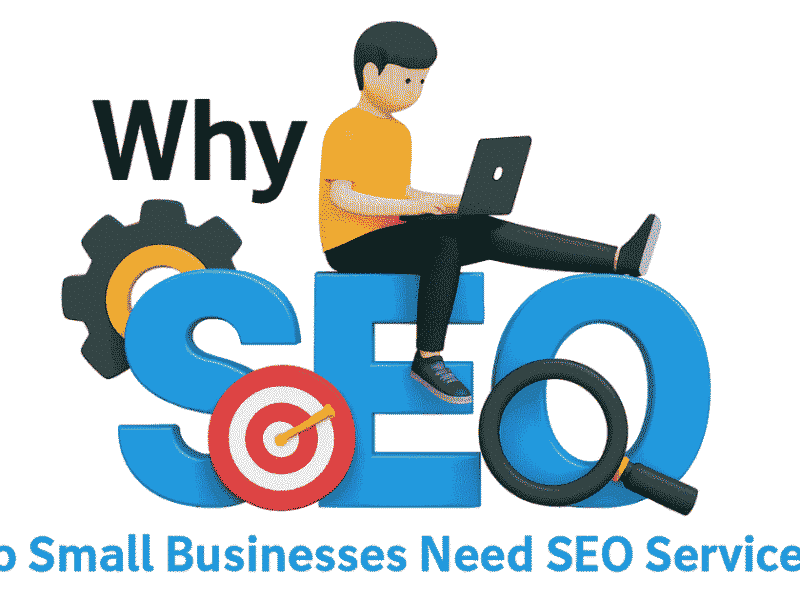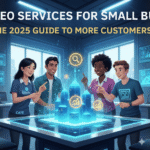If you’ve ever typed “Do Small Businesses Need SEO Services” into a search bar, you’re not alone. Owners and operators ask this every week usually after a quarter of rising ad costs, slipping foot traffic, or a competitor that suddenly appears above them in Google’s local results.
This guide gives a straight answer, with practical steps you can use immediately. We’ll cover what “SEO services” actually include, why visibility matters more in 2025, the ROI you can expect (with real numbers), and a 90‑day plan you can run with your current team. You’ll also get a checklist for choosing a reputable provider, common pitfalls to avoid, and clear examples from businesses like yours.
By the end, “Do Small Businesses Need SEO Services” won’t be a question it’ll be a plan.
Table of Contents
The Short Answer (and the Honest One)
Do Small Businesses Need SEO Services? Yes if your customers search online before they buy (they do), if you want to win more local “near me” clicks, and if you’re ready to turn your website into a steady source of leads or sales. The only time the answer might be “not yet” is when you’re still defining your core offer or changing locations/branding so fast that any work you ship will be outdated in a month.
In every other case, search is the most durable, compounding channel you can invest in. Here’s why that statement holds up in 2025:
- Local intent is exploding. More people search “near me,” “open now,” and “[service] + [city]” than ever.
- Ads are pricier. Your cost‑per‑click rarely goes down. Organic clicks remain margin‑friendly.
- Mobile rules. If you’re not fast and readable on phones, you’re invisible when it matters most.
- Trust signals matter. Reviews, accurate profiles, and useful content win tie‑breakers online and in‑store.
The rest of this article shows how to turn that reality into results.
What “SEO Services” Actually Include (Beyond Buzzwords)
Before deciding, you should know what you’re buying. When people ask, “Do Small Businesses Need SEO Services,” they’re really asking, “What will be done, who does it, and how soon will I see outcomes?”
Core Components You Should Expect
Strategy and Planning
- Define goals (calls, form fills, bookings, foot traffic, online sales)
- Identify target search terms by intent (informational, commercial, transactional)
- Build a local search plan (service areas, city pages, map pack optimization)
On‑Page Optimization
- Title tags, meta descriptions, headings, and internal links aligned to intent
- Clear, scannable copy that answers the question quickly
- Conversion elements like click‑to‑call buttons, prominent CTAs, and trust badges
Technical SEO
- Core Web Vitals (speed, interactivity, stability) tuned for mobile
- Clean URL structure, XML sitemaps, robots.txt, canonical tags
- Safe redirects, no broken links, and indexable pages
Local SEO
- Google Business Profile setup and optimization (categories, services, photos)
- Consistent NAP (name, address, phone) across directories and citations
- Review management (collection, responses, and embedding on your site)
- Localized pages with directions, parking info, and neighborhood landmarks
Content Strategy
- Service pages, FAQs, and advice articles that build topical authority
- Location pages that speak to local needs and terminology
- Useful resources (checklists, price guides) that convert visitors into leads
Off‑Site Signals (Trust and Authority)
- Earning mentions and links from local publications, associations, and partners
- Sponsorships and community involvement that appear online
- Strong review velocity and authenticity across platforms
Analytics and Reporting
- Setup and verification of Search Console and Analytics
- Call tracking or booking tracking as appropriate
- Monthly updates with actions shipped, outcomes, and next steps
If a proposal doesn’t cover these areas, you’re not getting the full picture.
Why 2025 Changed the Game for Local Search
“Do Small Businesses Need SEO Services” matters more this year because the playing field shifted.
The Rise of the Map Pack
The top three local results complete with ratings, hours, and directions steal attention. If you’re not there, you’re below the fold on mobile. Optimization of your Google Business Profile (GBP), consistent NAP data, and reviews are your ticket in.
Zero‑Click Answers and SERP Features
People often get answers (FAQs, featured snippets, People Also Ask) without clicking. When your content powers those answers, you still win visibility, calls, and brand recall.
Mobile‑First Everything
Most local searches happen on phones. Speed, readability, tap‑friendly buttons, and clear “call now” elements aren’t nice‑to‑haves; they’re ranking and conversion factors.
Reviews as the New Word‑of‑Mouth
Quality, quantity, and recency of reviews affect both rankings and decisions. Thoughtful replies to reviews even the tough ones boost trust and visibility.
Privacy and Attribution
With browser changes and privacy updates, paid tracking gets harder. Search Console and call/booking tracking give clearer attribution for organic.
In short: 2025 rewards small businesses that show up consistently and helpfully across search features not just in blue links.
The Business Case You Can Defend (With Numbers)
Let’s put math behind the question “Do Small Businesses Need SEO Services.”
A Simple ROI Model
- Monthly search impressions for target topics: 20,000
- Expected click‑through for top local/map placements: 6–10% → ~1,200–2,000 visits
- Conversion rate (calls, forms, bookings): 3–7% → ~36–140 leads/orders
- Close rate (services) or repeat rate (e‑commerce): 25–60%
- Average order value or job value:
1,500 (varies widely)
Even conservative numbers show that a handful of new customers per week pays for most local programs. The point isn’t to promise the moon it’s to demonstrate a reasonable path to payback.
Cost Ranges (to Reality‑Check)
- DIY + guidance: time plus tools;
1,000/month in software
- Starter local program:
1,500/month (suitable for single‑location service businesses)
- Comprehensive local + content + technical:
4,000/month
- Multi‑location or competitive metro:
8,000+/month
Investment varies by market and goals. The right partner will match scope to likely outcomes.
The Four Pillars: How to Turn SEO Into Outcomes
1) Local SEO Essentials (Your Fastest Wins)
Google Business Profile (GBP)
- Choose the most specific primary category
- Fill out services, products, hours, and attributes
- Post occasional updates (promos, events, seasonal notes)
- Add high‑quality photos (exterior, interior, staff, products)
- Enable messaging if your team can respond quickly
Reviews and Reputation
- Ask after a positive interaction; make it easy (QR code, text, email)
- Respond to every review; be grateful and human even when fixing issues
- Embed top reviews on key site pages; add LocalBusiness schema
Citations and Directories
- Ensure consistent NAP data across major directories (Apple, Bing, Yelp, niche sites)
- Fix duplicates and errors that confuse search engines and customers
Location Pages That Convert
- Include neighborhood names and landmarks to match local language
- Provide parking/transit info, click‑to‑call, map embeds, and localized FAQs
- Highlight staff or owner profiles people buy from people
2) On‑Page SEO (Make Every Page Useful)
Keyword Intent and Structure
- Assign one primary intent per page (e.g., “emergency plumber in [city]”)
- Use descriptive titles and headings (no stuffing; write plainly)
- Add a clear summary at the top; answer common questions with short sections or FAQs
Conversion Elements
- Prominent phone number and “call now” button on mobile
- Simple forms with only necessary fields
- Trust badges (licensing, certifications, guarantees) and review snippets
Internal Links
- Link from high‑traffic pages to services and locations
- Add “related services” sections to guide users helpfully
- Keep a clean, intuitive navigation
3) Technical SEO (Remove Friction)
Speed and Core Web Vitals
- Compress images and serve modern formats (WebP/AVIF)
- Defer non‑critical scripts; reduce third‑party bloat
- Aim for fast first load and smooth interactions on phones
Indexability
- Submit XML sitemaps in Search Console
- Use canonical tags to avoid duplicate content
- Fix 404s and redirect old URLs properly
Accessibility
- High contrast, readable fonts, alt text for images, focus states
- Better accessibility often equals better conversions
4) Content That Earns Trust
Service Pages and FAQs
- Explain what’s included, pricing ranges, timelines, and what to expect
- Answer real questions (from calls/emails) in plain language
Localized Articles
- “Best [service] routes in [city],” “How to prepare for [season] in [neighborhood]”
- Showcase community involvement; tell customer stories
Guides and Checklists
- “Moving to [city]? Utility setup checklist,” “Annual maintenance checklist for [home systems]”
- Offer downloadable versions to collect emails (if relevant)
Search engines reward pages that demonstrate first‑hand experience and helpfulness. So do people.
A 90‑Day Plan You Can Start Monday
If you’re still wondering, “Do Small Businesses Need SEO Services?” run this plan and measure.
Days 1–30 Foundation and Fast Fixes
Setup and Strategy
- Verify Search Console and analytics; configure call or booking tracking
- Audit GBP; fix categories, services, hours, and photos
- Crawl the site; fix critical technical issues (404s, titles/headings, speed priorities)
Content and On‑Page
- Write or refresh top two service pages (clear titles, FAQs, CTAs)
- Create or improve one location page with local details and reviews
- Add internal links from the homepage and high‑traffic pages to services/locations
Reputation and Citations
- Launch a simple review request process (text/email post‑service)
- Fix major directory listings (NAP consistency)
Deliverables:
- Clean GBP, two optimized service pages, one strong location page, review request system live, core technical issues addressed
Days 31–60 Authority and Local Relevance
Content and Local Signals
- Publish two helpful articles answering common questions
- Add schema (LocalBusiness, FAQPage) where appropriate
- Embed recent reviews; add “as featured in” if you have press mentions
Outreach and Partnerships
- Offer a helpful guest article to a local association or chamber
- Sponsor a community event and ensure online mention with a link
Performance Tuning
- Optimize images and caching; improve mobile CLS/INP metrics
- Monitor rankings for target local terms; refine titles/meta for CTR
Deliverables:
- Two local content pieces, better performance metrics, at least one local mention/link, richer schema
Days 61–90 Scale and Measure
Content and Conversion
- Refresh one legacy page; add a downloadable checklist or pricing guide
- Test a “click‑to‑call” banner on mobile during business hours
Reporting and Optimization
- Review Search Console (impressions and CTR by query)
- Compare call/lead volume to last quarter; assess quality
- Plan next quarter’s priorities based on data (e.g., more location pages, niche service pages, seasonal content)
Deliverables:
- 90‑day report (what shipped, outcomes, next steps), additional content, conversion improvement test results
Run this cadence once and you’ll see movement. Run it every quarter and you’ll build a defensible lead engine.
DIY vs Partner: Choosing the Right Path
DIY (Owner/Team‑Led)
Do Small Businesses Need SEO Services from an outside team or can you DIY? Use this quick comparison.
Pros:
- Lower cash outlay; total control of tone and priorities
- Faster edits when something changes
Cons:
- Requires time and a learning curve
- Quality and consistency can slip when the day gets busy
Best for:
- Solo operators or teams with an eager marketer
- Markets with modest competition
Professional Services
Pros:
- Process, pace, reporting, and quality control
- Strategy and technical depth without a full‑time hire
Cons:
- Higher monthly cost
- Requires a responsive point person on your team
Best for:
- Competitive markets, multiple locations, or businesses needing steady growth
Hybrid
- Keep reviews, photos, and quick changes in‑house
- Use a partner for technical work, content strategy, and link earning
Hybrid often delivers the best of both worlds for small teams.
How to Choose a Reputable Provider (and Avoid Pain Later)
When you ask “Do Small Businesses Need SEO Services,” you also need to know how to buy wisely. Use this checklist.
Questions to Ask
- Show a 90‑day plan with weekly deliverables what will we see and when?
- What’s included: local, on‑page, technical, content, link earning, reporting?
- How do you measure success calls, forms, bookings, revenue?
- Can you share two anonymized case snapshots with results?
- Who does the work (in‑house vs subcontractors)? How often do we meet?
- How will you handle reviews and GBP updates without overposting?
Red Flags
- Promises of “Page 1 in 30 days” or guaranteed rankings
- Private blog network links or paid link schemes
- No reporting or only vanity metrics (impressions without conversions)
- Lock‑in contracts with no exit after 90 days
- “Secret sauce” answers to simple questions
What a Good Scope Includes
- Strategy and keyword/intent mapping
- GBP optimization and review system setup
- Technical fixes (speed, indexation)
- On‑page optimization for priority pages
- Two content assets per month (service/FAQ/local)
- One local partnership or citation campaign per month
- Monthly reporting with actions and outcomes
Clarity up front prevents friction later.
Common Pitfalls (and How to Avoid Them)
- Publishing for volume, not value
Fix: Every page must answer real customer questions and include a clear next step. - Ignoring reviews
Fix: Ask systematically; reply to all; showcase on your site. - Overlooking mobile
Fix: Test your site on phones; simplify forms; add click‑to‑call buttons. - Skipping technical basics
Fix: Submit sitemaps; fix broken links; improve speed; use schema. - One‑and‑done mindset
Fix: SEO compounds. Commit to a 90‑day cycle and weekly action. - Buying cheap links
Fix: Earn mentions from real local sites, trade associations, and partners.
Do Small Businesses Need SEO Services? Not if you want to gamble. But if you want steady, defensible growth, avoid these traps and commit to the basics.
Real‑World Snapshots (Anonymized)
- Family Dentistry, Suburban Metro
Challenge: Competitors outranking for “emergency dentist near me.”
Work: GBP overhaul, emergency service page, review program, two local articles.
Results (90 days): +58% calls from maps, +27% organic appointments, first‑page ranking for “emergency dentist [city].” - HVAC Contractor, Multi‑City Service Area
Challenge: Seasonal lead swings; slow mobile site.
Work: Speed fixes, service‑area pages, financing FAQ, review widgets, local sponsorships.
Results (2 quarters): +41% organic leads, average response time down, map pack visibility across 14 neighborhoods. - Boutique Retailer, Downtown
Challenge: High ad spend; low foot‑traffic visibility.
Work: Location page with parking/transit tips, “new arrivals” content, local press feature, product schema.
Results (6 months): +33% directions clicks, +24% in‑store sales attributed to search, lower reliance on ads.
These aren’t outliers; they’re what happens when fundamentals are executed consistently.
SEO Checklist for Small Businesses (Copy & Use)
Local
- Claim and optimize Google Business Profile
- Consistent NAP across major directories
- Review request and response system live
- Location page with local details and schema
On‑Page
- One service per page, clear titles and headings
- FAQs answering real questions
- Internal links from homepage and high‑traffic pages
Technical
- Mobile speed improvements (Core Web Vitals)
- XML sitemap, robots.txt, canonical tags
- Fix 404s; set proper redirects
Content
- Two service page refreshes and one local article per month
- Use real photos and staff stories where possible
- Add downloadable resources if relevant
Reporting
- Search Console verified; submit sitemaps
- Call/booking tracking enabled
- Monthly review: actions shipped, outcomes, next steps
Pin this near your desk. It’s how small teams make big progress.
FAQs
Do Small Businesses Need SEO Services if most customers come from word‑of‑mouth?
Yes. Warm referrals still search your name, map your address, and read recent reviews. Strong local presence ensures those referrals convert and brings new customers you haven’t met yet.
Do Small Businesses Need SEO Services if we only serve a small town?
Yes, but scale the plan. One excellent location page, a tuned Google Business Profile, consistent reviews, and two service pages may be all you need to dominate your area.
Do Small Businesses Need SEO Services if we already run ads?
Yes ads are rented visibility; organic builds owned visibility. As ad costs rise, a healthy share of organic clicks protects margins and reduces volatility.
How quickly will we see results?
Fast wins map pack visibility, CTR improvements often appear within weeks. Substantial volume gains typically build over 60–90 days and compound each quarter.
Do Small Businesses Need SEO Services if our industry is ultra‑niche?
Niche buyers still search. With fewer competitors, well‑targeted pages and a strong profile can capture most demand in your category.
What’s the minimum content we need?
Start with: two optimized service pages, one strong location page, and a FAQ that answers actual customer questions. Add one local article per month and refresh quarterly.
Do Small Businesses Need SEO Services if we plan to rebrand soon?
If a rebrand is imminent (within 60 days), define the new structure first. Then execute SEO fundamentals with the new name, URL structure, and branding to avoid duplicate work.
How much should we budget?
Most single‑location service businesses see results with 2,500/month, depending on competition. Multi‑location or e‑commerce businesses may invest more for scale.
Do Small Businesses Need SEO Services if we can do it ourselves?
If you have time, follow the 90‑day plan and DIY the basics. Many owners later hire a partner to keep pace while they focus on operations.
Conclusion: Turn the Question Into a Plan
Do Small Businesses Need SEO Services in 2025? Here’s why it’s a game‑changer: search is where customers decide, maps are where they click, and reviews are where they trust. When you align your website, profile, and content to those realities, you create a compounding advantage one that outlasts ad trends and social algorithms.
Your next five steps:
- Claim and optimize your Google Business Profile (categories, services, photos, hours).
- Refresh two service pages with clear titles, FAQs, and click‑to‑call buttons.
- Publish one strong location page with local details and review snippets.
- Launch a simple review request and response system this week.
- Stand up a one‑page dashboard (Search Console, calls/Bookings, top queries) and review it every Friday.
Run this for 90 days. If you prefer a partner, use the checklist above to choose wisely. Either way, stop asking “Do Small Businesses Need SEO Services” and start collecting the results that prove the answer.




